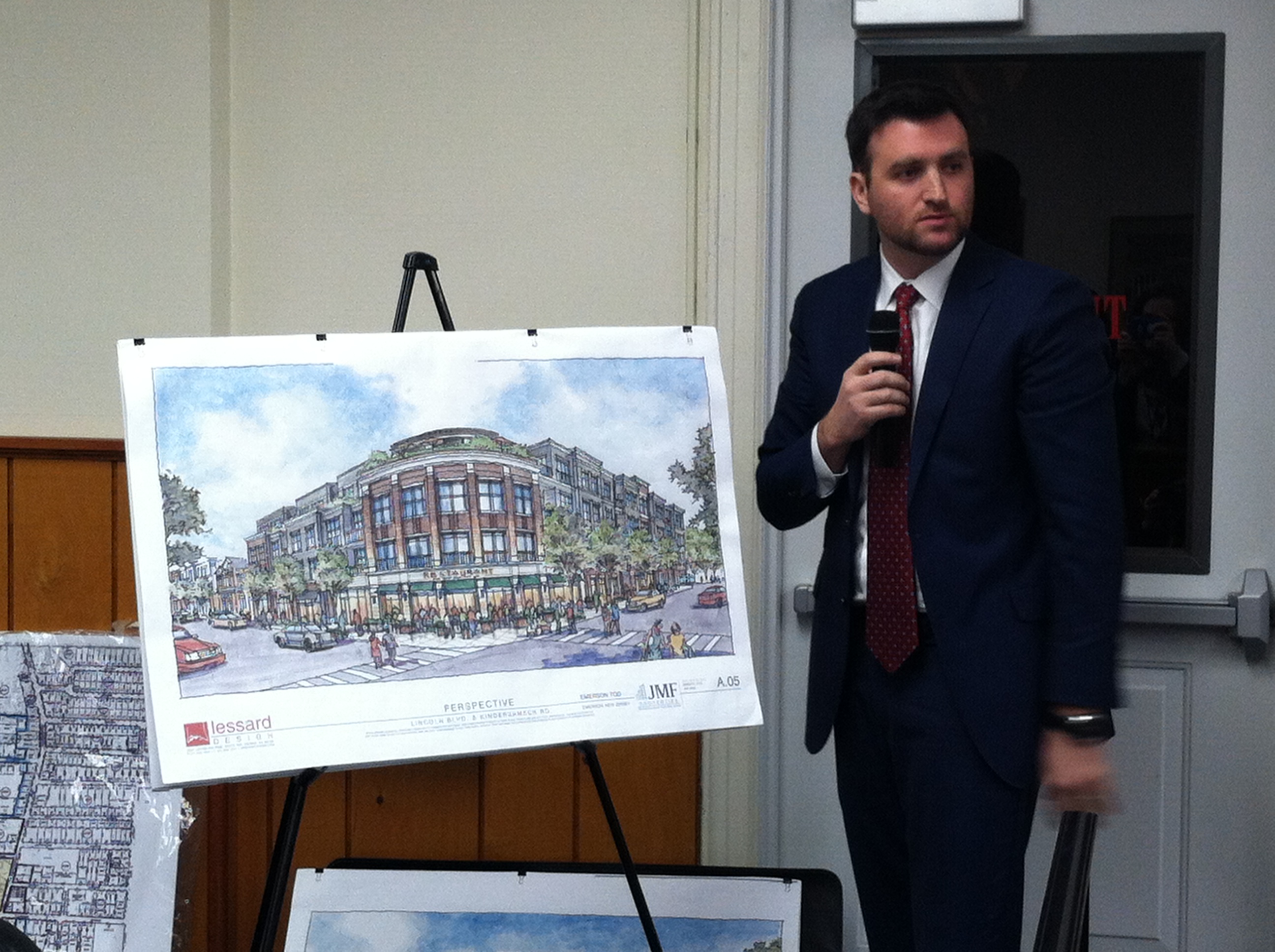
EMERSON, N.J.—The governing body will take up a vetted affordable housing settlement Tuesday, June 26, with the contentious agreement clearing both a required judicial fairness hearing and the Land Use Board.
Superior Court Judge Gregg A. Padovano found June 20 that Emerson’s affordable housing settlement with the nonprofit Fair Share Housing Center was fair and reasonable, clearing the way for the borough to move on it.
Announcing the decision June 21 on Facebook, Mayor Louis Lamatina wrote, “In so ruling, [Padovano] explicitly found that the properties of Block 419, known as the redevelopment project, were ‘necessary or useful’ for the construction of affordable housing in the Borough.”
He added, “We will now move forward with carrying out the requirements of the settlement in accordance with the Court’s ruling.”
The nine-member Land Use Board adopted it unanimously that night, with no comment from the public reported.
Emerson’s Realistic Development Potential (RDP) is 53 units, 24 of which exist and the remaining 29 to be satisfied with the Block 419 redevelopment.
The borough’s second-round obligation was 74, with an RDP of 20, which was satisfied. Thus, 54 units of unmet need were carried forward from the second round.
The third-round obligation was agreed on at 234 units. After subtracting the 53-unit obligation, Emerson was left with an unmet need for the third round of 181 units.
All told, the remaining unmet need is 235 units, which will carry through to 2025, provided that the Block 419 project is built.
At the heart of the project, and not resolved by Padovano’s green light, remains the disposition of two suits brought by holdout property owners the governing body said this year it would use eminent domain to clear out unless they take a deal.
“That challenge is still very much alive and our clients look forward to pursuing their claims, whether in the prosecution of those actions or in defense of a condemnation action to be brought by the borough,” Richard DeAngelis, the owners’ lawyer, told Pascack Press the afternoon of June 21.
The lots, 2, 3, 4, and 6.01, include the well reviewed Cinar Turkish Restaurant, Cork & Keg liquor, and Ranch Cleaners, whose owners sued the borough in 2016 over its designation of their parcels as blighted, which facilitates their being condemned and forced to sell for a negotiated price.
Padovano signed off on language stating that the borough “will undertake good-faith negotiations with any remaining property owner(s) for such properties not otherwise under option for purchase by the Redeveloper, and in the event that good faith negotiations are unsuccessful, the Borough is committed to acquiring the property(ies) through eminent domain.”
[slideshow_deploy id=’899′]
Ordinances remain
There will be other routine ordinances to get through, and in fact the borough has a head start on this, having earlier adopted a zoning ordinance that created an inclusionary zone district.
Details of that: a density of 43 dwelling units per acre and required 15 percent set-aside for housing constructed for rental purposes and a 20 percent set-aside for housing constructed for sale purposes.
The required set-aside units will be deed-restricted units for affordable housing. The designation applies to Block 616 Lots 1, 2,16, 17, 19–24 and Block 617.01 Lots 1, 2.01, 2.02 and 8.
Emerson looks to the future
The borough and JMF Properties have been eager to settle the housing deal and give rise to an ambitious mixed-use project: retail stores, 147 apartments, and a parking garage on Kinderkamack Road between Lincoln Boulevard and Linwood Avenue, also known as Block 419.
The now-approved 22 minimum low- to moderate-income apartments in Block 419 are part of that plan. Four very-low-income units are constructed; another four are eyed for the block.
The governing body voted 5-1 to allow eminent domain under both the state Local Redevelopment and Housing Law and the Fair Housing Act, with Republican mayoral challenger Councilwoman Danielle DiPaola saying no.
Asked about the prospects for settlement, Lamatina said, “People have very firm positions until they come off those firm positions. We’re hoping—we always hope—it’s a last resort, but again we have no choice as a council. Because if we do not pursue eminent domain we will be in breach of contract with JMF.”
DeAngelis was at the fairness hearing, as were borough representatives and Court Special Master Mary Beth Lonergan.
Following the hearing, DeAngelis told Pascack Press, “The mayor may try and spin it any way he wishes, but the court denied the borough’s motion to decide the eminent domain issue in this proceeding.”
Padovano did grant preliminary approval of the settlement agreement between the borough and Fair Share Housing Center as expected. That document was filed in March.
Importantly, DeAngelis said, the court did not address the issue of whether the borough may condemn the holdout properties without first resolving the pending redevelopment challenge.
Nor did the court address the borough’s claims that it has the authority to condemn the properties for affordable housing under the Fair Housing Act, he added.
DeAngelis said it was sad that borough taxpayers have paid more than $100,000 in legal fees to fund this effort, which “serves the interests of the developer, not the people of Emerson.”
The proposed Block 419 development was conceived as a redevelopment project, opponents note.
[slideshow_deploy id=’899′]
Residents speak out
Land Use Board Chairman Gary Schwinder spoke for the eminent domain ordinance when it was being debated, saying in part, “A vote against this ordinance is tantamount to saying ‘do not redevelop.’”
Ken Hoffman, a former councilman who was the Republican candidate in 2017, said the ordinance was unethical and un-American.
“Don’t use the cowardly excuse that you had no choice because you know it’s not true. Therefore, there is no need to begin recklessly rezoning our neighborhoods nor should we allow builders to dictate zone changes,” he said.
